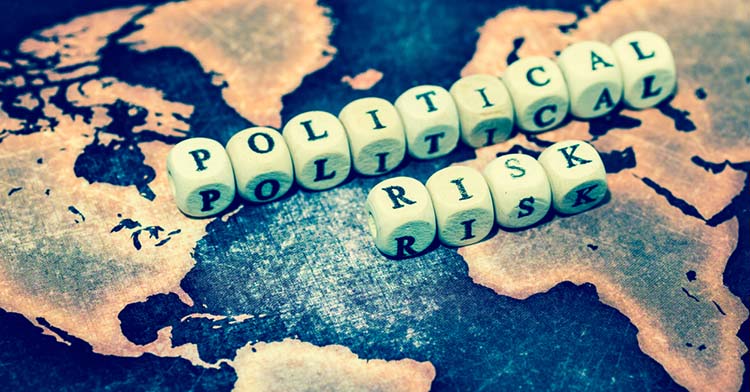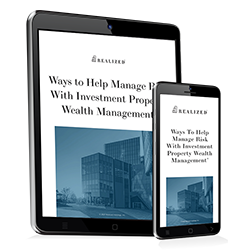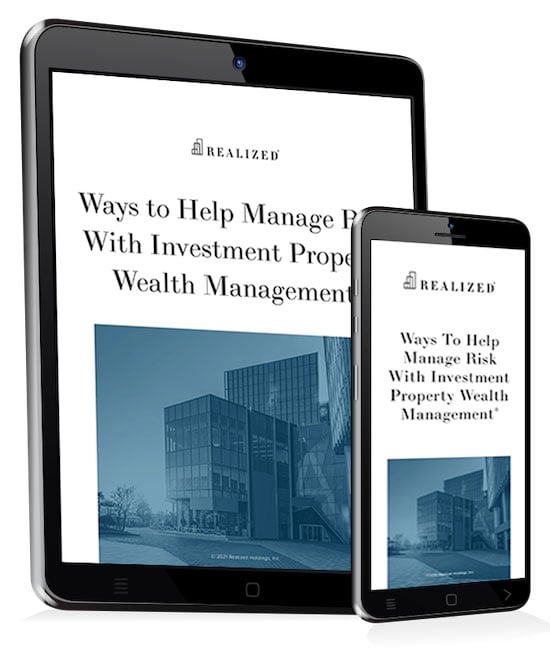
At Realized Holdings, we write about risk on a frequent basis. There are all kinds of risks that impact investments, such as business risk, credit risk, general market risk, and systematic risk.
As an investor, you also need to be aware of political risk. While the idea of political risk tends to be in conjunction among nations with volatile governments or poor business practices, political risk can have an impact on all your investments, no matter their country of origin.
Understanding Political Risk: A Primer
Political risk is defined as the impact a country’s instability or political changes might have on your investment’s return or value. Each nation has its own political environment, and changes in that political landscape will impact your investment. Changes in party leadership, legislation, or regulations can have an impact. So can unexpected changes to fiscal or monetary policies. This, in turn, could make it difficult to not only realize value from investments, but could make it difficult to pull money from it.
Ian Tobman, senior analyst at Export Development Canada, divides political risk into three categories:
Government Interference
There are times during which a government might seize or confiscate an asset or investment. When that asset is private property, this is known as expropriation. Other examples of government interference can include changing regulatory requirements or adding taxes.
Transfer and Conversion
In this situation, governments or central banks could implement restrictions on converting local currencies to hard currencies, or could prohibit hard currency from leaving the country. An example of this occurred in March 2022, when Russia banned its residents and citizens from exchanging the collapsing ruble into other types of currency (i.e., dollars). This can make it difficult for foreign companies to pay dividends to investors.
Political Violence
Terrorism, war, civil strife, and other forms of violence can prevent companies and banks from doing business, and can destroy assets (and their value). There is also a chance that violence could lead to nationalization of assets (a fancy word for “seizure”), which could also impact investment payouts and value.
Political Risk in the United States
As mentioned above, political risk can impact investments everywhere. U.S. investors (or foreign investors placing capital in U.S. assets) aren’t immune, either. Political risks come from corporate tax increases or lack of a business-friendly government. There is also political polarization, which breeds uncertainty – and equity markets don’t like uncertainty.
According to Marsh’s Global Insurance Market Index, the United States’ political risk is at 4.1-6.0, with 10 being the highest. This is because the U.S. tends to rank high in the areas of civil commotion, economic risk (due to inflation and the Federal Reserve’s monetary policies), and even terrorism.
U.S. political risk also stems from American companies reliant on other nations for goods and services. Investors with a stake in a U.S. goods distributor could be exposed to political risks occurring on the other side of the world.
Evaluating Political Risk
The takeaway from the above is that no nation—even those with developed economies, markets, and institutions—are free from political risk. So how can political risk be measured? There are indicators that might suggest an increase in political risk such as:
- Political instability: A pending coup, overthrow, or potential government change
- Legal and regulatory constraints: A higher degree of regulatory constraints (especially when government is involved) can suggest higher political risk
- Tariffs and import restrictions: Such restrictions mean a higher degree of difficulty in successfully doing business with particular countries or communities
- Labor unrest: High numbers of strikes or walk offs can lead to supply chain issues and decrease in investment value
While it’s impossible to remove all political risk from your portfolio, you can research areas of largest risk, and help manage its exposure. Other strategies that can help manage political risk include the following:
- Diversification. Spreading your investments across other countries and asset classes can help limit regional impact to your portfolio.
- Avoiding highly volatile countries. Steer clear of regions with civil war, uprisings, political unrest, or party shifts.
- Targeting adaptive companies. Businesses investing in a region might be able to reduce political risk by improving the work environment and enhancing employee quality of life. This, in turn, stabilizes the labor market.
- Focusing on vertical integration. Companies that operate across several markets are also diversified, and are likely more prepared to handle political volatility.
Perhaps the worst thing you could do when it comes to dealing with political risk is ignore it. Certainly, emerging markets and developing countries could offer higher rates of return. But before funneling your capital toward investments in those locations, be sure to perform in-depth due diligence and judge your risk/reward appetite. While you can’t avoid political risk, you can understand it as part of your investment strategy.



